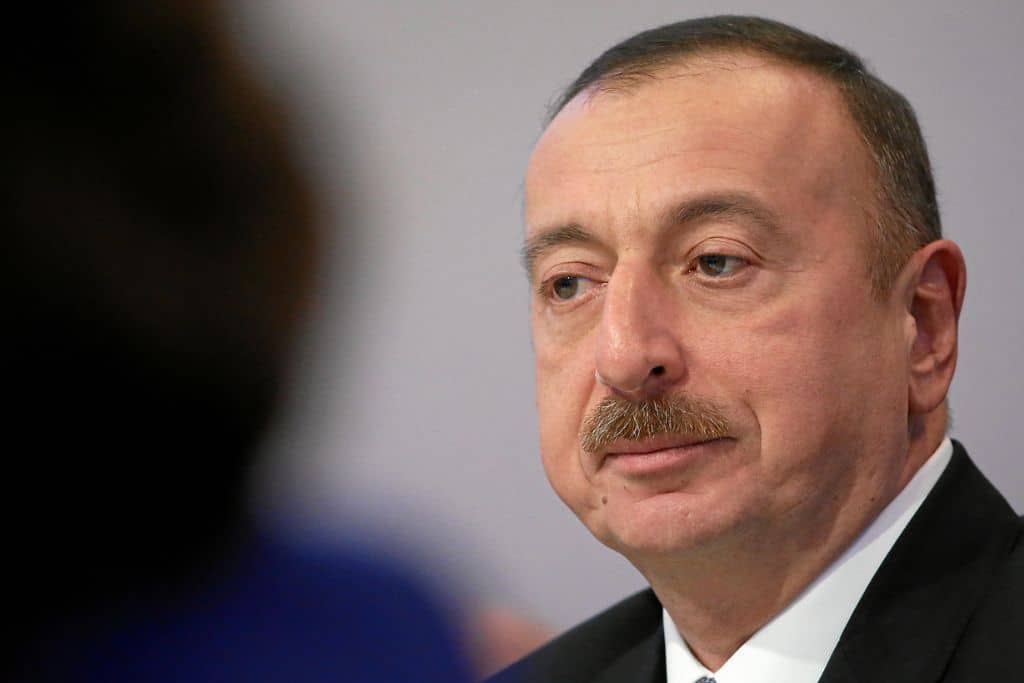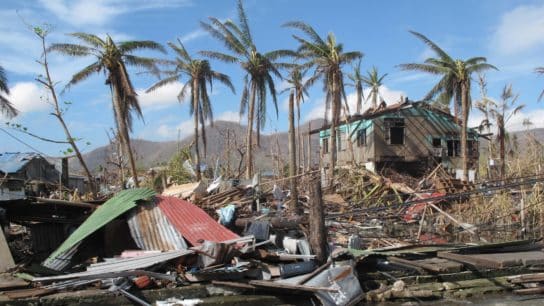This weekly round-up brings you key climate news from the past seven days, including deadly floods in central and eastern Europe and a groundbreaking move to ban fossil fuel advertising in The Hague.
—
1. Storm Boris: Record-Breaking Rainfall Floods Central Europe After Continent’s Hottest Summer on Record
The flooding events are among the worst to affect Central Europe in modern history. They follow Europe’s hottest summer on record and a hot start to September in the region as well as several consecutive months of exceptional warmth in the Mediterranean Sea.
They affected parts of Austria, Czech Republic, Hungary, Poland, Romania, Slovakia, and Italy. They were triggered by Storm Boris, which unleashed unprecedented rains throughout the region. Many European rivers have swelled to alarming levels, including the Danube.
A hotter atmosphere, driven by human-made climate change, can lead to more intense rainfall. As the sea surface warms, so does the air above it, causing water to be carried up to high altitudes to form clouds, while leaving a low pressure zone beneath causing more air to rush in. As these systems build up, thunderstorms are formed, and if there are no strong winds to slow it down, they can become powerful storms.

According to London-based meteorologist Scott Duncan, Boris has been drawing cold air from the Antarctic before mixing with a moisture drawn up from the Mediterranean and the Black Sea, which is also much hotter than usual. The plunge of cold trapped the storm between the moisture to the west and east, slowing it down and fueling it.
Days before the events unleashed, weather models flagged the potential of a “massive rainfall event” and “catastrophic flooding,” prompting scientists to raise the alarm.
“A massive rainfall event is looking increasingly likely for parts of central Europe over the next few days. The reason: a slow-moving cut off upper low fueled by anomalously warm waters of the Mediterranean Sea. If anything near that verifies, catastrophic flooding is likely,” scientist Nahel Belgherze wrote on X last Wednesday.
Read more here.
2. No Mention of Fossil Fuel Phaseout in COP29 Presidency’s Agenda
Azerbaijan has unveiled a list of priorities for the upcoming climate summit, which included global energy storage, electric grids, and climate finance but left out the production and consumption of planet-warming fossil fuels.
In a letter to Parties and Constituencies published Tuesday, the COP29 Presidency outlined a series of voluntary initiatives and outcomes on its Action Agenda, laying out in full the series of pledges and declarations that it will use to supplement the negotiated COP agenda and accelerate climate action.
Notably, the Action Agenda did not include any mentions of phasing out planet-warming fossil fuels: coal, natural gas, and oil. This is despite the COP28 deal’s unprecedented call to “transition away from fossil fuels in energy systems, in a just, orderly and equitable manner to achieve net-zero by 2050 in keeping with the science.”

The appointment of Azerbaijan, a highly fossil fuel-dependent state and the oldest oil-producing region in the world, as the COP29 host has reignited debates over the role of fossil fuels in the UN summit as it marked the third petrostate in a row to host the talks after the United Arab Emirates (UAE) last year and Egypt in 2022.
Read more here.
3. The Hague Becomes First City in the World to Outlaw Fossil Fuel Advertising, Months After UN-Chief Call to Stop Fueling Disinformation
The Dutch city of The Hague passed a groundbreaking law on Thursday to ban advertisements promoting fossil fuel products and services, the first city in the world to do so.
Effective from January 1, 2025, the new ban applies to fossil fuel products and high-carbon services such as cruise ships and air travel. The legislation is a crucial step in the city’s transition to net zero, which it aims to reach by 2030.
“The Hague wants to be climate neutral by 2030. Then it is not appropriate to allow advertising for products from the fossil industry,” said Leonie Gerritsen, a member of the city council for the Party for the Animals and one of the backers of the new local law.
For many, the ban will have repercussions beyond the local level and could act as a potential catalyst for similar actions worldwide.
The move comes months after UN Secretary-General António Guterres called on countries to ban fossil fuel advertising in the same way they restricted tobacco.
“Many in the fossil fuel industry have shamelessly greenwashed, even as they have sought to delay climate action – with lobbying, legal threats, and massive ad campaigns. They have been aided and abetted by advertising and PR companies – Mad Men fuelling the madness,” Guterres said in a speech in June to mark World Environment Day.
Read more here.
4. Cities, States Leaders Call on World Leaders to Ban Fossil Fuels Ahead of UN Summit
The time has come for world leaders to listen to the voices of cities and states at the forefront of climate action and work alongside them to halt the expansion of fossil fuels, according to a letter signed by dozens of city and state leaders and addressed to UN heads of state.
The call comes ahead of the United Nation’s Summit of the Future, which is set to kick off on Sunday in New York, and the UN General Assembly High-Level Week. World leaders at the summit are set to adopt the Pact for the Future, an intergovernmental blueprint for multilateral governance in an age of crisis.
“As you meet for the General Assembly and Summit of the Future, we as leaders of States and Cities, urge you to transition your countries away from fossil fuels,” the letter, signed by 14 mayors, governors, and subnational leaders across five continents, read. Together, they represent more than 40 million people. The signatories hope their call will add pressure on national leaders to turn their positive words about transitioning away from fossil fuels – a pledge they made at last year’s COP28 – into concrete action.
Home to 56% of the global population, cities are responsible for 70% of global primary energy consumption and 60% of global greenhouse gas (GHG) emissions. They are also at the forefront of climate change, vulnerable to water-related hazards such as floods, droughts, sea level rise, and storm events as well as extreme heat. But as their climate vulnerability grows, so do their efforts in mitigating and adapting to a warming planet.
Read more here.














